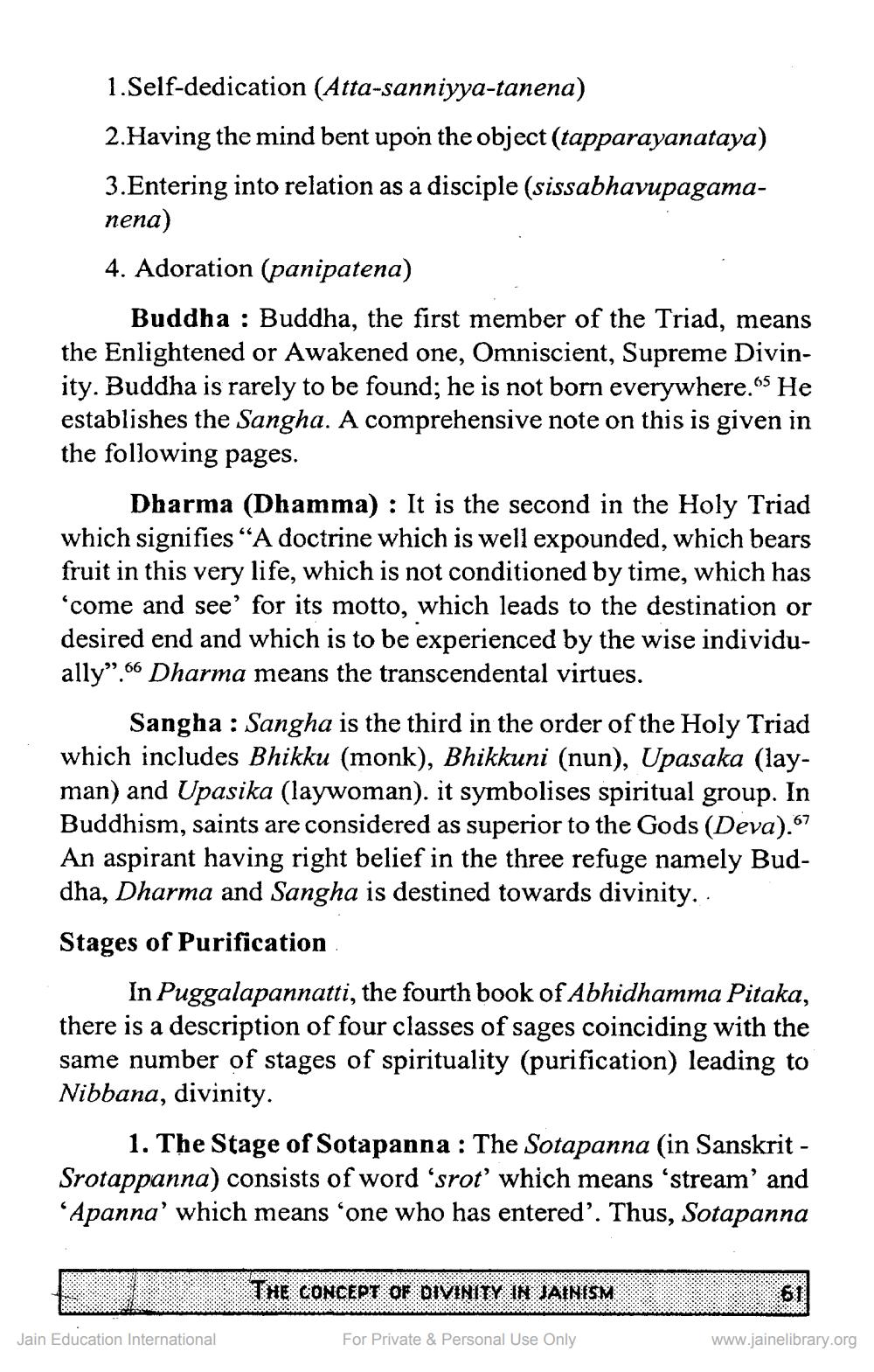________________
1. Self-dedication (Atta-sanniyya-tanena) 2.Having the mind bent upon the object (tapparayanataya) 3.Entering into relation as a disciple (sissabhavupagamanena) 4. Adoration (panipatena)
Buddha : Buddha, the first member of the Triad, means the Enlightened or Awakened one, Omniscient, Supreme Divinity. Buddha is rarely to be found; he is not born everywhere.65 He establishes the Sangha. A comprehensive note on this is given in the following pages.
Dharma (Dhamma): It is the second in the Holy Triad which signifies "A doctrine which is well expounded, which bears fruit in this very life, which is not conditioned by time, which has 'come and see' for its motto, which leads to the destination or desired end and which is to be experienced by the wise individually”.66 Dharma means the transcendental virtues.
Sangha : Sangha is the third in the order of the Holy Triad which includes Bhikku (monk), Bhikkuni (nun), Upasaka (layman) and Upasika (laywoman). it symbolises spiritual group. In Buddhism, saints are considered as superior to the Gods (Deva).67 An aspirant having right belief in the three refuge namely Buddha, Dharma and Sangha is destined towards divinity.. Stages of Purification .
In Puggalapannatti, the fourth book of Abhidhamma Pitaka, there is a description of four classes of sages coinciding with the same number of stages of spirituality (purification) leading to Nibbana, divinity.
1. The Stage of Sotapanna : The Sotapanna (in Sanskrit - Srotappanna) consists of word ‘srot' which means 'stream' and “Apanna' which means 'one who has entered'. Thus, Sotapanna
THE CONCEPT OF DIVINITY IN JAINISM
61
Jain Education International
For Private & Personal Use Only
www.jainelibrary.org




